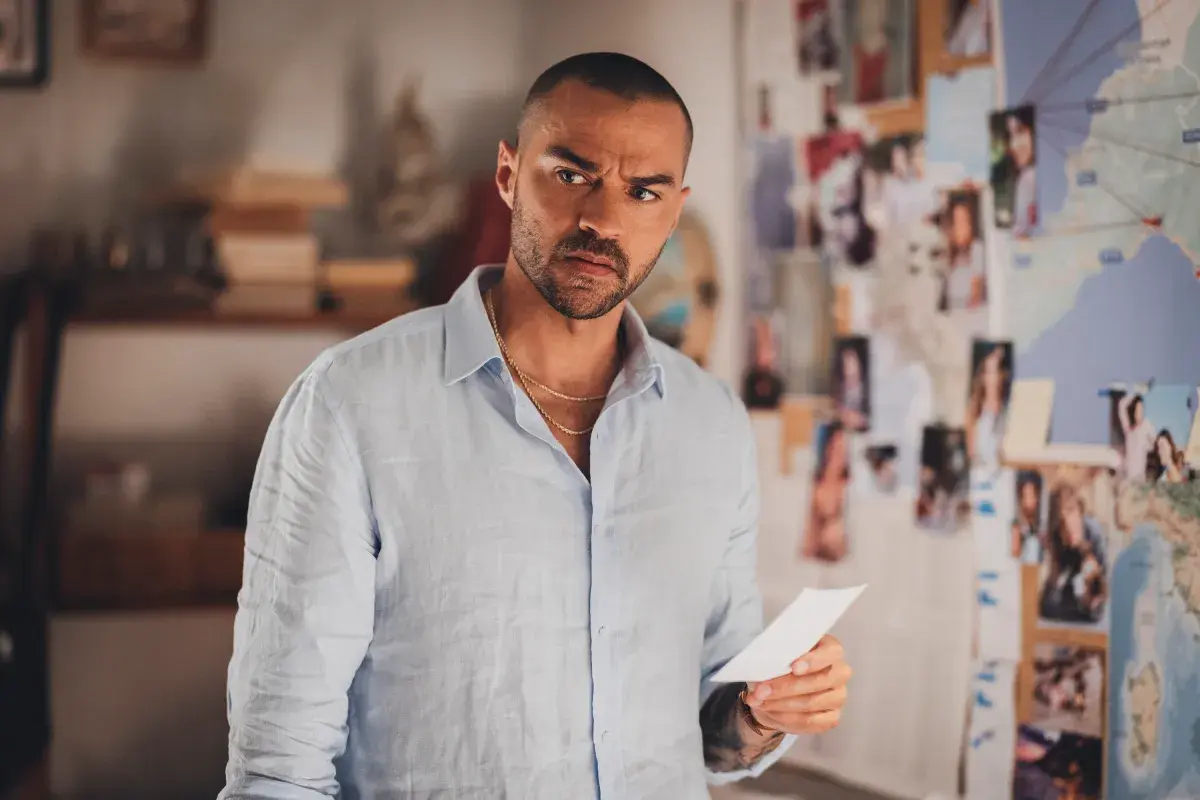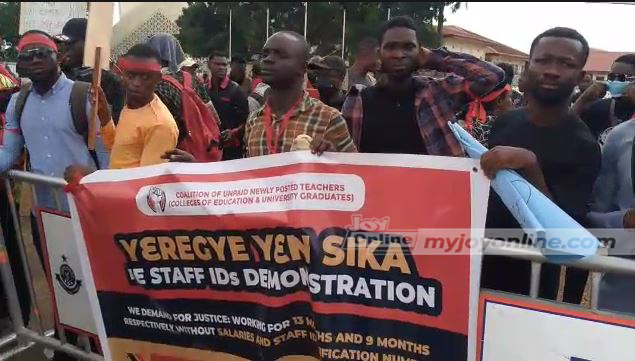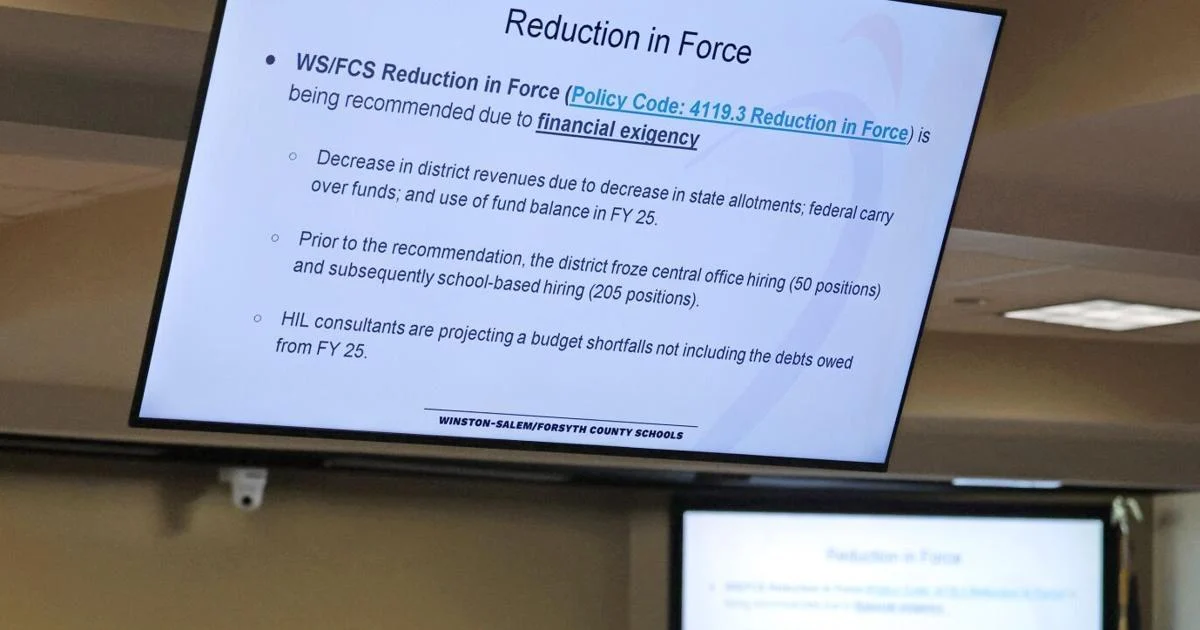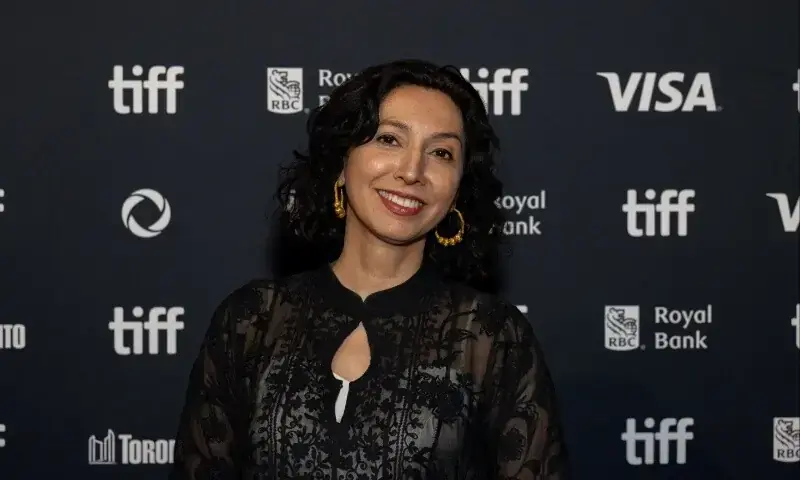
“I very much feel like I’m just starting my career.”
For Hotel Costiera, Jesse Williams was drawn to making “something that’s global.” The new Prime Video series stars Williams as Daniel De Luca, a former Marine who returns home to Italy to work at a hotel, only to find himself tasked with finding the missing daughter of the hotel’s owner. While he has “no complaints” filming in Positano paradise, “I tried to stay relatively disciplined, but I ate a lot of pasta and bread.” Of the character, he related to his duality. “I don’t really say I’m half anything,” he notes. “That has to have found itself stewing in something Daniel De Luca is dealing with.” The series represents a new phase for Williams, taking creative control as a producer. “It certainly feels good…to [have people] bet on you in the same way you’re trying to bet on yourself.” After leaving his role on Grey’s Anatomy, his first move was a deliberate challenge, Broadway, and now this, raising the stakes by creating an original show. “Like, it’s really trying to forge something new in a space.” But ultimately, it’s all about the process. “I love the collaboration that exists in our business.”
SUBSCRIBE TO THE PARTING SHOT WITH H. ALAN SCOTT
ON APPLE PODCASTS OR SPOTIFY AND WATCH ON YOUTUBE
Editor’s Note: This conversation has been edited and condensed for publication.
You know Jesse, watching Hotel Costiera, I kept thinking the one thing, “What a hard gig Jesse has. Filming in paradise. Soooo hard.” I mean, the gig just gets harder and harder, doesn’t it?
That’s fair. Of all the places in the world, no complaints.
You’re a professional, but how do you do it in this beautiful location and not just wanna say, “Oh, I’m gonna be an hour late today.”
That’s a fair question. I think because I’m a producer, like a very active producer, I constantly had a list of deliverables. We’re casting somebody with art direction, we’ve got to change wardrobe, this location we lost, it’s raining. So I was so involved in other things that I had somebody to hold me accountable. Like I had things that I had to check in with. I couldn’t just disappear to Capri for half a day, which was tempting. I mean, the food, the wine, it was a trip. I tried to stay relatively disciplined, but I ate a lot of pasta and bread, and I lost 13 pounds on this. Because their food is real food. It’s not American poison. It’s not enriched crap. Like it’s crazy. It’s flour and water.
Their food is basically the natural Ozempic. I was wondering that, like, you’re in this place with great food but you’re also the star and need to look hot in these fight scenes. How do you do that?
I was exhausted. It was me versus my own eye bags. That was really the battle, less than the gut. But that was my worry. And everybody, the culture there, it’s like family and hospitality and eat, eat, eat. You look skinny, eat eat eat. Everybody wants to feed you. So I thought that was gonna be more of a problem, but it was just maintaining energy, trying to get decent sleep, consistent sleep. But I was constantly pinching myself, looking out at this vista, at this coast, at this landscape, it was spectacular.
To be at this point in your career where you can produce a show at this level, what is that like for you? What does that mean for you right now?
Well, the thing is, there’s the work and then we’re about to see the result. The work I’ll speak to first, I love it. I love to work. I love to be on set. I love to compare ideas. I love being wrong. I love debate and figuring something out and agree[ing] and disagree[ing[. I love the collaboration that exists in our business. And it’s so much more rewarding when it’s a little collective successes. So the process is super enjoyable. It is certainly validating. It certainly feels good to be able to have in anything that you’re doing, to feel like you have a little bit of juice. You’ll get another five minutes for people to listen, to hear you out, or to have faith or to bet on you in the same way you’re trying to bet on yourself. I’ve bet on myself a ton, and it failed. That’s part of it, you know, and this is being able to have another swing. All we can ever ask for is the patience and allowance of others to give you a chance and a second chance. And so it’s certainly been very rewarding in that respect to have a partnership with Adam Bernstein, our showrunner, and certainly Lux Vide, who originated the idea, and Amazon, both in Italy and internationally. To get down with our idea and bet on us. I remember Jen Salke, the head of Amazon at the time, came out and came to set in the first week and took her to dinner and that felt awesome. Like people are really paying attention because we need everybody in order to find success. Now, when the show does amazing, which I know it will, that will be another form of validation because it gives us a chance to look out off the bow of the ship and decide where we want to chart our course next, you know? Another season, other things, you know, so work begets work, success begets opportunities for more success. So I’m in the beginning of that journey. I very much feel like I’m just starting my career. I’ve said this before, as soon as I decided to start doing this business, the truth is I got on a big show. So I’ve only kind of acted on one show for a decade and then Broadway and then this is my try things out phase. Get scared and try things that are weird and things that make me feel uncomfortable and things are just different for the sake of being different. So that’s where I am at this stage.
Well, I like the stage that you’re at because it’s a lot of fun. What was it about this story that appealed to you?
I think it was twofold, the inner personal for the character and then more expansive. One, what attracted me to it was a guy going through something between a quarter- and midlife crisis. A guy who had invested so much of himself into something and then without it, what is he? What are we without the trappings of the team that we’re on? He’s out of the military, he’s spent his whole life there, and this is a guy who’s kind of something I can relate to. One thing this guy grew up in Italy or started his life in Italy but then moved to America, he’s half Italian, he’s half Black American, he’s kind of both things and neither thing and half a thing but a complete thing times two, and so what is his identity? Does he have alignment anywhere in his life? He decides to go home back to where he was born, to lick his wounds and recalibrate for a second. And I can relate to a lot of elements of that story, the machinations of that being. So the inner work of a character that seemed interesting, what is it to be a man, both in the constraints of the American identity, but also globally. And then speaking of that, what I really loved was an idea of making something that is global. America is not the world, America’s not the be-all [and] end-all. What is it like to just be around other cultures and other cultural forms of expression and other languages and dialects and nuances and realize how there’s far more similarities than there are differences. There’s a little more expansive view, I think, at this time in my life. This time in our world, what’s happening in current events. I think it’s just nice to just open the windows in the house a little bit, let some air in. So there was the utility of it for me as a person and a performer, and then there’s also a bit of a blue sky optimism that I think we could all benefit from.
Yeah, I mean, speaking of the duality of the character, the Italian and the American aspect of the character, I found that really interesting, mainly because with a show like this and you in a place that you’re in in your career, you’re an actor first, but also a star. So there is this element of the star’s narrative, the actor’s narrative in the character. I wanted to know how much of the character’s duality assisted or even amplified his ability to tell a deeper story?
Yeah, I think you’re right. I think that that’s a pretty astute observation. It certainly informed, and what I’m stewing on is how much I knew, what I knew and when I knew it in the process, because there were a lot of discoveries in the flow of rehearsal or shooting or in a moment. I think all actors can relate to discovering a deeper meaning in a scene or a moment on the way home. As a New Yorker, I say my best audition is on the train home after the audition. And so sometimes we’re working on some things, and I realize I’ve accessed something from a real experience or from a kind of fish-out-of-water moment. And also that duality that I’ve experienced in my life, it makes you a bit of an invisible man, you know? Like Ralph Ellison said, you’re a fly on the wall in spaces that otherwise maybe some of your contemporaries don’t get access to. So I get to be authentic, I am authentically here. This guy is authentically from Napoli, but he is also very much American, and both of those are true. For example, a white mother and a Black father, I don’t really say I’m half anything. I’m just both of those things. It’s a linguistic term, but that has to have found itself stewing in something that the character, Daniel DeLuca, is dealing with. It’s like returning home and refinding his gear, refinding his footing. Also, I would say one of the things about the project is where it’s kind of genre-bending, is it’s funny. Finding humor and lightness, even when dealing with a kidnapped girl or something, right? You’re kind of both action and comedy and accessible, but also blue sky, dreamy, but all these things at once. That’s what life is. You have a hilarious moment with your coworker and then you get bad news. And then you go to lunch, and that really is the spontaneous, kind of jagged, jerky experience of being an adult in the world. So I think that we’re hoping to have that reflected, too.
Well, that was my next question, about the comedy of it all. While we have seen you be funny in different projects, I wouldn’t necessarily say that you’re known for comedy. And what is great about this is that it is funny. It adds all those elements. I feel like this could have been a George Clooney show 20, 30 years ago. What was it about the comedy that stood out to you that you particularly liked?
I appreciate that because that’s something that’s important to me. At the heart of it, I love comedy. I fancy myself relatively funny, certainly the most common thing I get from people that know me well or that are beginning to know me, a lot of times it’s, “How do you not do more comedy? You’re really funny. You should be doing comedy.” I think because I’ve been an activist, I’ve been involved in so many social justice movements, and I’m talking seriously about serious things. And I think I also have a bit of a resting dick face. I’ve got a resting like unhappy face. So the comedy is a surprise to folks. The other comment I get often is, “You should play a villain.” I don’t know how to feel about that, but I want to play all those things. But the comedy is absolutely something that wets my beak, I’m drawn to it. To be honest, after I left Grey’s [Anatomy] and I went to Broadway, I really wanted to do comedy, and I was curious, maybe even worried, that there wouldn’t be space for me, people wouldn’t expect that from me because of my reputation, but I have been pleasantly surprised. I went right into Only Murders in the Building, which was a laugh riot, that experience. So comedy is really what I wanna be, one of the many things, but a very important thing to me. It is who I am, and I am my realest self. So it’s important to me. And I tried to pepper that in as much as possible. Our writing team did a fantastic job and also dealing with a different sensibility of, it’s a very European show in many respects. Our British stars are really funny. Sam Haygarth and Jordan Alexandra. And then the Italian sensibility, Antonio Girardi. We’re coming at it from all different angles, which has been really funny. So I appreciate that some of that came through because it’s important to me.
And the comedy adds to the action. Having this really intense action scene, and then all of a sudden a joke, a funny moment. And then to have that come from a leading man type. Like when Brad Pitt does something, it’s intense, there’s action or drama, and then suddenly he’s funny. That creates this connection between the story and the audience. That’s such a fun balance, especially for a show like this.
I think it’s nice to have something that is pillarized, that is put on a pedestal, brought down to earth. So, I think that if you use me or Brad as an example, no matter how you feel, whether that guy’s handsome or not, you know that other people are putting the energy that way. So he must inherently be aware of that, and therefore to some degree aloof. He must think he’s a little bit better than us, but then when he sits down and cracks a beer and talks about the game, oh, he’s one of us. People like to feel both [to] have something to aspire toward, but also that’s accessible and doesn’t foster insecurity like, “Oh we’re just a regular guy.” So I think that regular, that bro, dry, kind of, you say Clooney, like that dry comedy, those mutterings, that’s my wheelhouse. We’re all always affected by and borrowing from and inspired by things around us, and I think of early Ricky Gervais, I grew up on a lot of Monty Python, a lot of British comedy, a lot of quick, fast cerebral, understated barbs, and then the Martin Short and other American comics. So yeah, I think that that doesn’t always come in this package. And I think we like a unique package, you know? Those two colors don’t necessarily work, but he makes them work. So I think there is a subconscious kind of attraction to something like that when done well, and I’m happy to have the opportunity to just put my toe in.
From 2009 to 2024 you were an iconic part of Grey’s Anatomy, and being on a show that long can really put a stamp on your career and the roles you take after that show. In some ways it can pigeonhole you into certain roles. It doesn’t feel that way for you, but did you ever worry about that?
I absolutely worried about it. I’ve seen it happen to other iconic members of iconic shows. And it’s just part of the education process. You see things happen, and you want to protect against it. So while being wildly appreciative of the opportunity that gave and continues to give me, I was very aware of it and now luckily, for me, I always had such a myriad of interests that I didn’t have to invent any to try to shake off the yoke of something. I sincerely was interested in all these other things that I have been doing. I didn’t start acting until I was almost 30 years old. I was living a real life and a different life. I should say, they’re all real. But I was aware of it, and I think that going right into making no money, killing myself on Broadway for almost a year, doing eight shows a week, is very different. I play a very different character in a very, very different tone. And then picking projects I wanna pick, I don’t know if it’s the cart or the horse, I don’t know if it’s the carrot or the horses, but I always wanna do something different, I always want to be challenged, I always wanted to be creative. So that’s doing [The Great] Lillian Hall with Kathy Bates and Jessica Lange and playing a director and then, okay, now let’s create an original, very rare, an original property. I think I’m probably, I don’t know, the third, only the third person in Amazon Prime history to be a Black actor and to produce his own show and that’s original. It’s not based on IP or something else. Like it’s really trying to forge something new in a space, it’s got no brand recognition, we’re not riding on the coattails of anything. That’s new. That’s a challenge. There’s 90 ways that it could fail. And so that’s raising the stakes, trying something different. Let’s do it in a different language. I’m terrible with languages, by the way. Some people can really just do it. It was labor for me. But to answer your question, I absolutely worried about it. I was actually conscious of it, but I didn’t ever worry for long because I sincerely have all these other interests. I’m gonna do other things. I’ve been lucky in that regard, but I’d be lying to say that I wasn’t worried about that.



